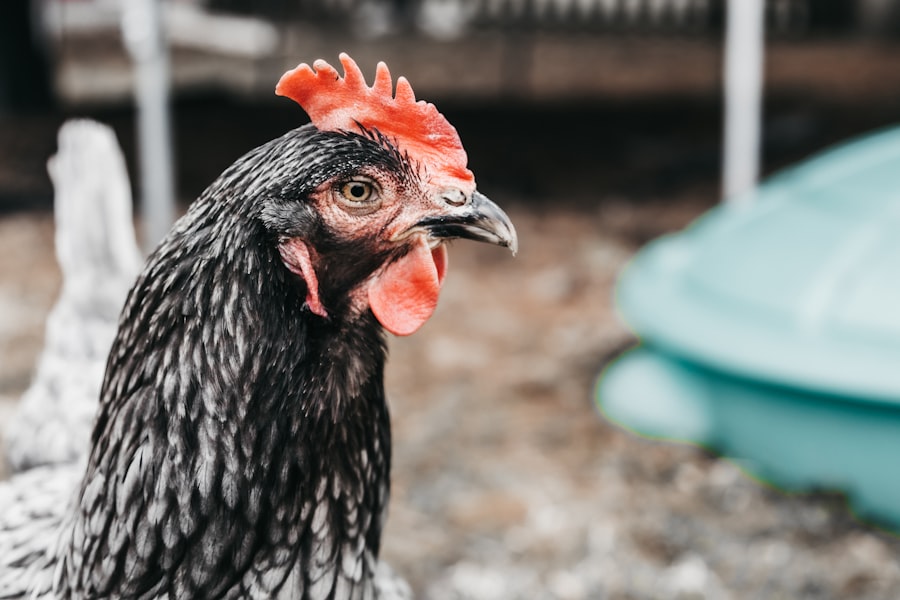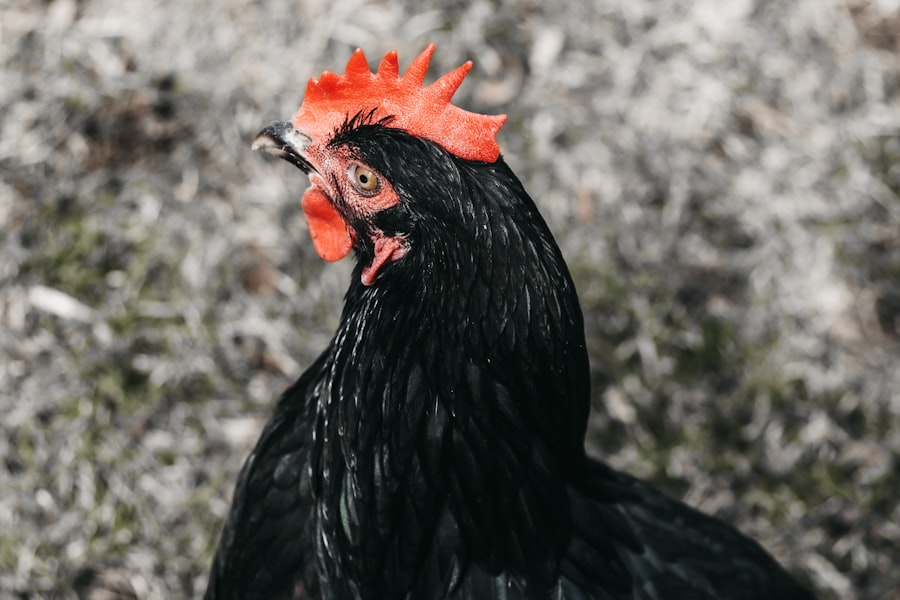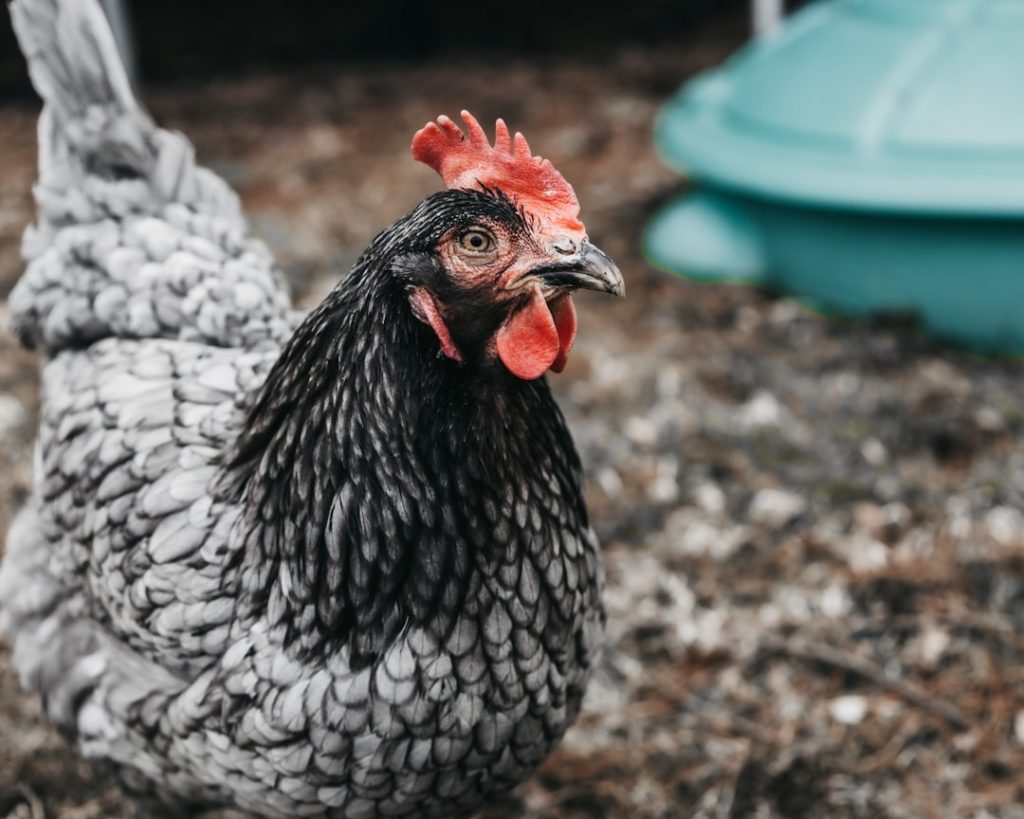Chicken keeping is a beneficial activity for individuals in both rural and urban settings. The practice offers various advantages, including a sustainable source of fresh eggs, natural pest control, and organic fertilizer production. Chickens can be raised for egg production, meat, or as companion animals.
These birds are generally low-maintenance and can provide entertainment due to their distinct personalities and behaviors. Proper chicken care requires attention to several key factors. Owners must provide a secure and comfortable living space, a nutritionally balanced diet, and regular health monitoring.
Daily tasks, weekly maintenance, seasonal adjustments, and long-term planning are essential components of responsible chicken keeping. By addressing these aspects, owners can ensure the well-being and longevity of their flock. Understanding the fundamentals of chicken care is crucial for anyone considering this endeavor.
This includes knowledge of housing requirements, feeding practices, disease prevention, and local regulations regarding poultry keeping. With proper preparation and ongoing care, chicken keeping can be a rewarding and sustainable practice for individuals and families alike.
Table of Contents
- 1 Daily Tasks for Chicken Care
- 2 Weekly Maintenance for Chicken Coops
- 3 Seasonal Considerations for Chicken Care
- 4 Health and Wellness Check-ups for Chickens
- 5 Long-term Planning for Chicken Keeping
- 6 The Rewards of Keeping Chickens
- 7 FAQs
- 7.1 What is the general amount of work required to keep chickens?
- 7.2 What are the daily tasks involved in keeping chickens?
- 7.3 What are the weekly tasks involved in keeping chickens?
- 7.4 What are the monthly tasks involved in keeping chickens?
- 7.5 Are there any additional considerations for keeping chickens?
Key Takeaways
- Keeping chickens can be a rewarding and enjoyable experience for both beginners and experienced poultry keepers.
- Daily tasks for chicken care include providing fresh water, feeding, and collecting eggs.
- Weekly maintenance for chicken coops involves cleaning, checking for wear and tear, and replenishing bedding.
- Seasonal considerations for chicken care include adjusting feeding and lighting schedules, and protecting chickens from extreme weather conditions.
- Regular health and wellness check-ups for chickens are essential for preventing and managing common poultry diseases.
- Long-term planning for chicken keeping involves considering the lifespan of chickens, breeding, and managing a sustainable flock.
- Keeping chickens can provide a sense of fulfillment, fresh eggs, and a deeper connection to nature.
Daily Tasks for Chicken Care
Providing Nutritious Food and Water
To keep your chickens healthy and thriving, it’s essential to provide them with a balanced diet that includes a mix of grains, protein, and calcium. This will support their overall health and egg production. Fresh water should also be available to them at all times, as it’s crucial for their well-being.
Collecting Eggs and Maintaining Clean Nesting Boxes
Regularly collecting eggs from the nesting boxes is vital to prevent them from being pecked or broken by the hens. Additionally, cleaning the nesting boxes and removing any soiled bedding will help maintain a clean and hygienic environment for your chickens.
Monitoring Health and Building Trust
Checking on the overall health and behavior of your chickens is crucial for their well-being. Observe their behavior, check for any signs of illness or injury, and address any issues promptly. Spending time with your chickens can also help build a bond and trust between you and your flock.
Weekly Maintenance for Chicken Coops

In addition to daily tasks, there are weekly maintenance activities that are necessary for the upkeep of your chicken coop. One important task is cleaning the coop and run area. This involves removing soiled bedding, droppings, and any debris that may have accumulated.
Keeping the coop clean not only provides a healthier environment for your chickens but also helps prevent the spread of diseases. Another weekly task is inspecting the coop for any signs of wear and tear or damage. This includes checking for loose or broken boards, damaged wire mesh, or any potential entry points for predators.
Ensuring that the coop is secure and in good condition will help protect your chickens from harm. Additionally, replenishing bedding material in the nesting boxes and coop area is important for maintaining cleanliness and comfort for your chickens. Providing fresh bedding helps absorb moisture and odors, as well as provides insulation during colder months.
Seasonal Considerations for Chicken Care
Throughout the year, there are seasonal considerations that need to be taken into account when caring for your chickens. During the winter months, it’s important to provide additional warmth and protection for your flock. This may include insulating the coop, providing supplemental heat sources, and ensuring that they have access to unfrozen water.
In the summer, it’s crucial to provide adequate ventilation and shade to prevent heat stress in your chickens. This may involve adding fans or vents to the coop, providing access to cool areas, and ensuring that they have plenty of fresh water to stay hydrated. Furthermore, during the spring and fall seasons, it’s important to be mindful of potential changes in weather patterns and adjust care accordingly.
This may include monitoring for signs of respiratory issues during damp weather or providing additional protection from wind and rain.
Health and Wellness Check-ups for Chickens
Regular health check-ups are essential for maintaining the well-being of your chickens. This includes monitoring their overall health, checking for signs of illness or injury, and addressing any issues promptly. Additionally, providing preventative care such as vaccinations and parasite control can help keep your flock healthy.
One aspect of health check-ups involves monitoring their diet and ensuring that they are receiving a balanced and nutritious feed. This includes providing access to fresh water at all times, as well as offering a mix of grains, protein, and calcium to support their overall health and egg production. Furthermore, observing their behavior and interactions within the flock can provide valuable insight into their well-being.
Any changes in behavior or signs of distress should be addressed promptly to prevent potential health issues from escalating.
Long-term Planning for Chicken Keeping

Caring for Aging Chickens
As chickens age, they may require additional support and care to maintain their quality of life. It’s crucial to understand their changing needs and provide the necessary care to ensure they remain healthy and happy.
Expanding Your Flock
Long-term planning also involves considering the potential expansion of your flock or introducing new chickens into the existing flock. Understanding how to integrate new chickens into the group and manage their interactions is crucial for maintaining harmony within the flock.
End-of-Life Care
Furthermore, long-term planning also involves considering the end-of-life care for your chickens. Understanding how to humanely euthanize a chicken if necessary, as well as proper disposal methods, is an important aspect of responsible chicken keeping.
The Rewards of Keeping Chickens
In conclusion, keeping chickens can be a rewarding and enriching experience that provides a sustainable source of fresh eggs, natural pest control, and even companionship. By understanding the daily tasks, weekly maintenance, seasonal considerations, health check-ups, and long-term planning involved in chicken care, you can ensure that your flock leads happy and healthy lives. The bond that can be formed between humans and chickens is truly special, as each chicken has its own unique personality and behaviors.
Whether you are raising chickens for practical purposes or simply as pets, the joy of caring for these feathered friends is immeasurable. With proper care and attention, chickens can thrive and provide countless benefits to those who choose to welcome them into their lives.
If you’re considering keeping chickens, you may also be interested in learning about whether guinea fowl can live with chickens. According to a Poultry Wizard article, guinea fowl can be a great addition to a chicken flock as they can help protect against pests and predators. This article provides valuable insights into the compatibility of guinea fowl and chickens, offering helpful tips for those looking to diversify their poultry.
FAQs
What is the general amount of work required to keep chickens?
The amount of work required to keep chickens can vary depending on the size of the flock and the level of care and maintenance required. However, on average, keeping chickens requires daily feeding, watering, and egg collection, as well as regular coop cleaning and maintenance.
What are the daily tasks involved in keeping chickens?
Daily tasks involved in keeping chickens include providing fresh food and water, checking for any signs of illness or injury, collecting eggs, and ensuring the coop is secure and clean.
What are the weekly tasks involved in keeping chickens?
Weekly tasks involved in keeping chickens may include cleaning the coop, replenishing bedding, checking for any signs of pests or predators, and inspecting the overall health and well-being of the flock.
What are the monthly tasks involved in keeping chickens?
Monthly tasks involved in keeping chickens may include deep cleaning of the coop, checking for any necessary repairs or maintenance, and evaluating the overall health and productivity of the flock.
Are there any additional considerations for keeping chickens?
In addition to daily, weekly, and monthly tasks, keeping chickens may also require additional considerations such as providing appropriate shelter, predator-proofing the coop, and ensuring the chickens have access to a suitable outdoor space for foraging and exercise.
Meet Walter, the feathered-friend fanatic of Florida! Nestled in the sunshine state, Walter struts through life with his feathered companions, clucking his way to happiness. With a coop that’s fancier than a five-star hotel, he’s the Don Juan of the chicken world. When he’s not teaching his hens to do the cha-cha, you’ll find him in a heated debate with his prized rooster, Sir Clucks-a-Lot. Walter’s poultry passion is no yolk; he’s the sunny-side-up guy you never knew you needed in your flock of friends!







